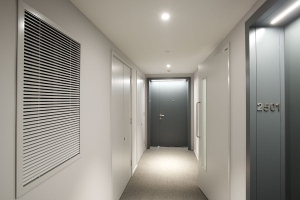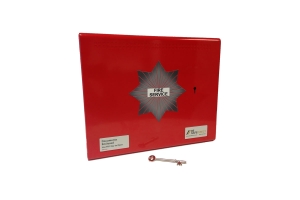Fire Safety in Student Accommodation

For young people across the country, leaving home for university is their first true taste of independence, but with this comes a new level of responsibility.
While this is a great experience and provides them with the skills they need for life in the wider world, it brings a number of potential dangers, including the risk of fire. Unfortunately, fires are relatively common in student accommodation, thanks to a mixture of inexperience with cooking appliances, careless disposal of cigarettes and intoxication.
In fact, 55% of deaths among 18-24 year olds in fires were due to the misuse of cooking appliances and he careless handling of hot substances, making it vital that students and accommodation managers alike know how to prevent, and should the worst happen, combat fires.
That’s why we’ve created the following top tips to help maximise fire safety, whether in halls of residence or private rented accommodation:
- Never leave open flames, cigarettes or cooking unattended. Materials such as curtains, bedding and furniture can easily catch light, and fire spreads quickly once it’s taken hold
- Unplug hot electrical appliances after use, and leave them somewhere safe to cool. Items such as hair straighteners/curlers can reach particularly high temperatures, and retain heat long after use, so make sure to unplug them and avoid leaving them on flammable surfaces, such as carpets and furniture
- Avoid cooking late at night or while intoxicated. ‘Chip pan’ or hot oil fires are relatively commonplace, with pans being forgotten about due to either tiredness or intoxication
- Ensure that the property is fitted with smoke alarms, and that they are tested regularly. Often a smoke alarm is the first thing that will alert you to a fire, giving you extra time to either tackle the fire or evacuate the building, so it’s vital to make sure that all smoke alarms are in good, working order
- Make sure fire-fighting equipment is easy to access and in a good state of repair. Fire extinguishers have a limited shelf-life and may deteriorate if left for too long, so make sure to check them regularly. Similarly, if fire blankets are present make sure you know their location, as they can be ideal for smothering chip-pan fires, and remember, NEVER use water to put out an oil fire
- Have an escape plan in place. If a fire does take hold it can spread quickly, and the smoke produced can limit visibility and quickly become overwhelming. Having a couple of well-signposted routes planned will mean that you’re prepared in case a fire starts in a particular part of the accommodation. Routine fire-drills in halls of residence can help to make students aware of what might be unfamiliar surroundings, and show them the best route to travel in case of an emergency
For more information on any of our products, or to speak to an experienced member of our team about your fire safety requirements, just fill out our contact form, email customerservices@besafedirect.com or call us on 0845 604 5653






